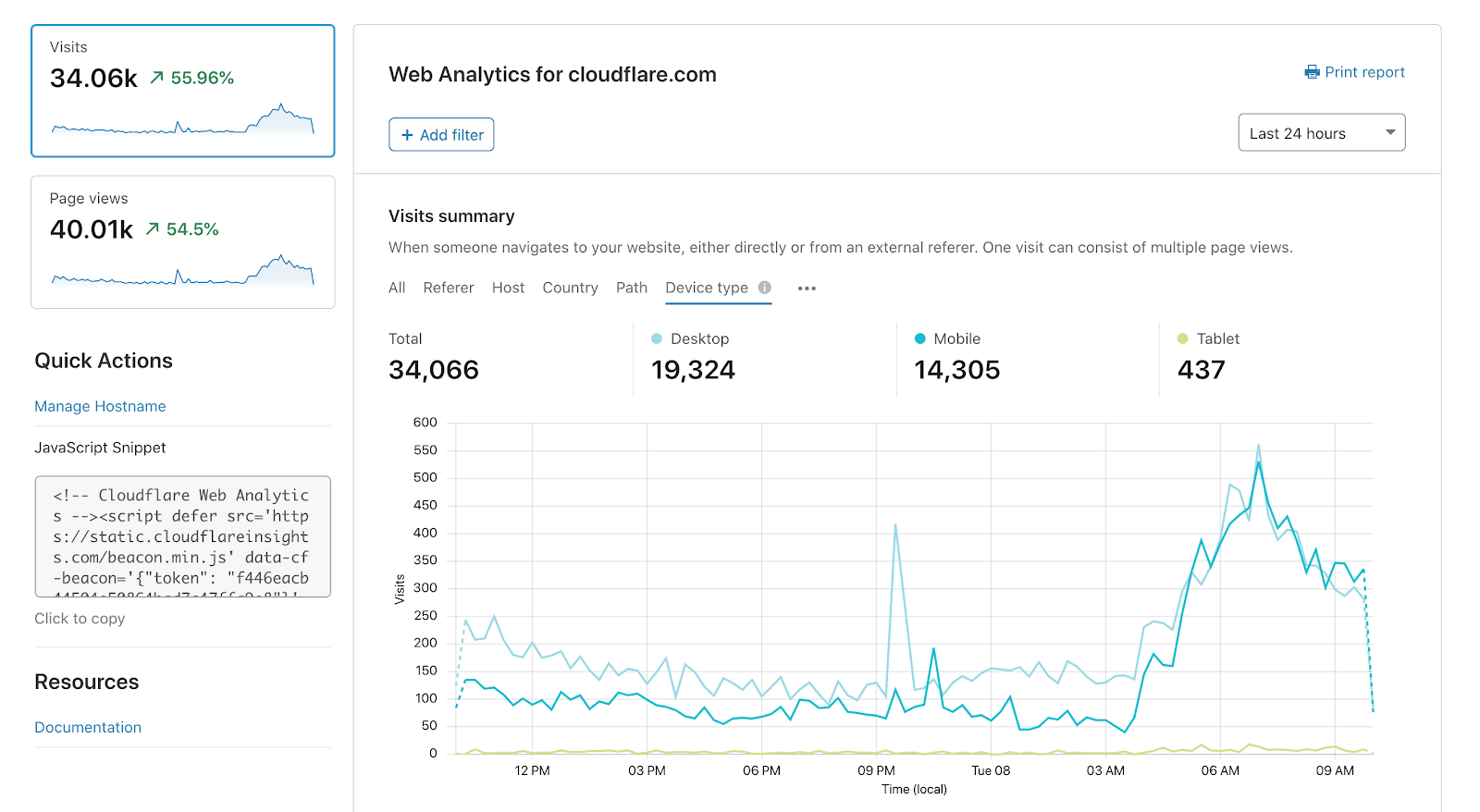4 Google Analytics Alternatives You Should Consider For Your Business

Google Analytics is the most popular web analytics tool by far. In fact, in our recent survey of 200 digital marketers, Google Analytics emerged as the top response across every question. It’s easy to understand why: It’s free, it comes with high-quality support and documentation, and it’s trusted by many businesses as the go-to solution for measuring website traffic, user behavior, and conversion optimization efforts. Because of its general popularity among website owners and operators, it’s no surprise that many other tools have sprung up as Google Analytics alternatives in an attempt to differentiate themselves from the competition. You may even be using one of these tools right now! But if so, why? We’ll explain everything you need to know about these alternatives and help you decide which ones are best for your business.
What’s so great about Google Analytics?
First and foremost, Google Analytics is easy to use. It’s very intuitive, and you can get started within the first few minutes of signing up. Another great feature is that it’s free! Most businesses can use it to track and analyze website activity and data, which means there’s no need to worry about hefty investment into the right tools right off the bat. Another benefit of using Google Analytics is that it’s easy to set up and configure. It has a very user-friendly interface that allows you to set up goals, track user information, generate reports, and more. When it comes to reporting, you can receive your data in real time, daily, weekly, or monthly, depending on your needs. This flexibility means that you can set it up however works best for your business. It also comes with high-quality support and documentation. Google Analytics has a huge community of users who are always ready to help members solve issues and find the answers to their questions. The abundance of instructional material and educational blog posts also means that you can learn how to use the system on your own without having to ask for help. Finally, Google Analytics is customizable. You can change the look and feel of the dashboard according to your needs and preferences. You can also adjust settings to meet your requirements and preferences.
A Little Background on Google Analytics
Google Analytics was launched in 2005, and since then, it has continued to evolve, improve, and deliver better reporting functionalities. With the introduction of the new Universal Analytics platform, it became even easier to use and set up. It also added many new features and functionalities, including support for mobile app tracking and Ecommerce tracking. Google Analytics has established itself as the most popular and widely used analytics platform. It’s used by more than 90% of the world’s top websites and is the analytics tool of choice for many of the world’s leading brands, including Airbnb, Amazon, Coca Cola, Disney, eBay, Etsy, Ford, General Electric, GoPro, HP, IBM, Intel, Nike, Oracle, Pepsi, Reddit, Starbucks, Tesla, and Walmart.
TrackMaven Alternative
TrackMaven is an analytics tool that prioritizes simplicity and ease of use for its users. You can set up tracking for your website, blog, or app in just a few clicks. This platform is especially good for visual marketers or for those who want to track the performance of their content. TrackMaven allows you to track what type of content performs best and what kind of content receives the most engagement from users. This information can help you make better decisions about your future content marketing efforts. TrackMaven also allows you to set up goal tracking and conversion tracking. You can use these tools to accurately track your website’s ROI and the effectiveness of your marketing initiatives. This analytics tool also makes it easy to share your analytics data with coworkers or clients. In addition, TrackMaven is affordable and easy to use. Tracking your data is simple, and you can view your data in real-time. You can also get your data instantly through email alerts. This can help you stay on top of your data and quickly know when something needs your attention.
SumoMe IM Tool
SumoMe is a free analytics tool that allows you to track your website traffic, measure the effectiveness of your content, and engage your readers. This tool has a variety of features that can help you discover what makes your readers tick and keep them coming back for more. SumoMe’s visitor widget is a great tool for collecting data from your readers. The widget allows you to engage your visitors and ask them questions or prompt them to take an action. You can also use the tool to add in-content links to your other blog posts. This can help you drive more traffic and readers to your other articles. SumoMe also has a content explorer tool that can help you create more effective content. This tool allows you to analyze the content that your readers are reading and those that are sharing. It also allows you to see what kind of images are being used with this content. This data can help you create better content that resonates with your readers and drives more engagement.
Goodware Pro
Goodware Pro is an analytics tool that allows you to track your website traffic and the performance of your content. You can use this tool to track your website’s overall performance and see which content is most engaging and gets the most shares. This data can help you create better content that resonates with your readers and drives more engagement. Goodware Pro also allows you to track your website’s performance and see what areas need improvement. This data can help you make your website more effective and efficient. This tool also allows you to create goals and track the performance of your website. It can help you understand what pages drive the most traffic and help you make the most of your website’s performance. Goodware Pro is a great analytics tool for growing businesses. It allows you to track important data, such as your website’s performance, traffic, and shares. It also allows you to set up goals and track the performance of your Ecommerce website.
Adobe Analytics
Adobe Analytics is a powerful analytics tool that allows you to track your website data and discover which content engages your readers. This data can help you create better content that resonates with your readers and drives more engagement. You can also use this tool to track your website’s performance and see what areas need improvement. This data can help you make your website more effective and efficient. Adobe Analytics also allows you to set up conversion tracking and see the performance of your Ecommerce website. This data can help you better understand what pages drive the most traffic and help you make the most of your website’s performance. Adobe Analytics is a great analytics tool for growing businesses. It allows you to track important data, such as your website’s performance, traffic, and shares. It also allows you to set up goals and track the performance of your Ecommerce website. This tool can help you understand what makes your readers tick and keep them coming back for more.
Conclusion
Google Analytics is by far the most popular analytics tool out there. It’s free, it comes with high-quality support and documentation, and it’s trusted by many businesses as the go-to solution for measuring website traffic, user behavior, and conversion optimization efforts. When it comes to analytics tools, there are many alternatives to Google Analytics, but many of them have key features that make them stand out. You may want to consider using one of these tools if you’re looking for something new or have specific needs that Google Analytics can’t meet.




